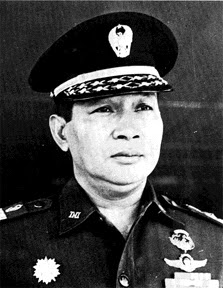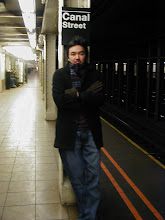
As the title suggest, i still shivered from excitement thinking about my coolest vacation trip to Tokyo last September with Timmy.
One expression i could come up with after contemplating for quite some time to describe the city is: elegant metropolis
What I meant is Tokyo has all the signature features of a big, global, and hectic city like NY, London, Shanghai (as reflected in its glitzy office towers, sophisticated mass transportation system, etc) Nevertheless, what sets it apart is the atmosphere of serene, advanced and matured society that pervades your senses everywhere you go around the city. You can not help to feel anything but amazed with the decency of its people and the society. It truly gives a new meaning to the notion of how to efficiently run a massive metropolitan.
Unlike flashier metropolis like Shanghai and New York, where the inhabitants try to compete with each other in having the biggest, most expensive luxury items or buildings to show off, Tokyo-ites seems to have an ingrained understated elegance atitude toward everything they touch and do.
Beforehand, I wish to tell a bit sidestory of my rendezvouz with Andi Taufiq and his new wife in Tokyo, after almost 5 years we didn't see each other since he left Columbus to pursue his study and life's dream back to Japan. Our rendezvouz has really reminded me of how blessed I am with the friendships I have garnered all the way up until my life's journey now. There were only several bonds of friendship that I can truly say have impacted me a great deal in terms of truly understanding the meaning of true friendship and human connection on a deeper level, and I consider my friendhsip with Andi as one of those special bonds, aside from Budiman. When we first saw each other again in a Chinese restaurant the night we arrived in Tokyo, right away we nostalgized on our days back in US and I was asking how's life been treating him in Japan. My first impression on Andi and his wife, Dini, was that they were truly soulmates and seems like a match made in heaven, and our fun vacation for 8 days ahead with them seems only to reinforce my first impression. We talked a lot about life in general and Andi shared his story of struggle when he first came to Tokyo with limited fund to cover his life expenses and tuition. But only through perseverance and a bit of luck, he told me how he managed to overcome the obstacles one by one. His story truly inspired me, as simple as that. They both also shared their love story of how they first met, and the difficulties facing them before they decided to get married. It's truly a heart-to-heart conversation that last night in Tokyo over dinner with them that I felt how truly lucky I am to have friends all over the world with their own life stories of struggle and survival. It reminded me again of what really mattered in life: faith, family, and friendships. Well, a bit of material wealth wouldn't hurt also actually :)
But overall, I would rate the journey as one of the most memorable trip in life that I wouldn't have a hard time to recall to my children and grandchildren. Because at the end of the day, what made our lives worth living is the story we had as well as the story we will tell, and the story that will be told about us when we are gone from this world.
So much more to tell about Tokyo as a city, but for now, I guess that would be it. Sayonara.



